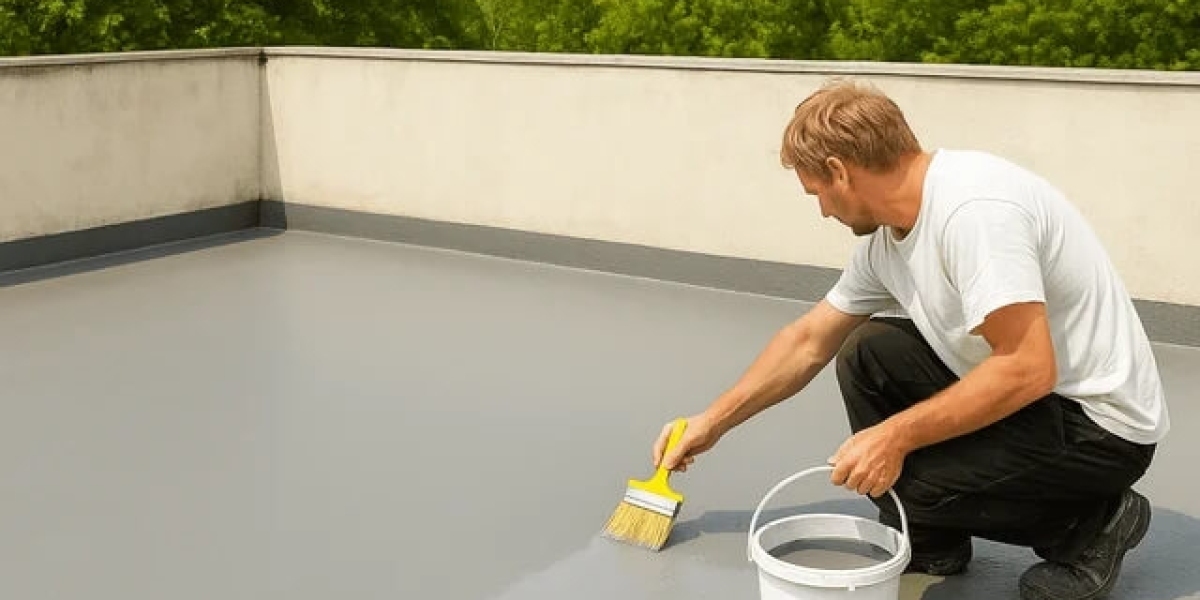Basement waterproofing services Delhi are not just another home improvement trend — they’re a necessity for every homeowner who values their property’s safety, structure, and longevity. Delhi’s unpredictable weather, fluctuating humidity, and heavy monsoon rains can wreak havoc on your home’s foundation. Without proper waterproofing, basements can become damp, musty, and structurally compromised, turning into a silent threat hiding beneath your feet.
In this article, we’ll explore why basement waterproofing isn’t optional in the Delhi region, what causes moisture problems, the types of waterproofing methods available, and how investing in professional solutions can protect your home for decades.
Understanding Why Basement Waterproofing Matters in Delhi
Delhi experiences extreme weather shifts — scorching summers, sudden downpours, and prolonged monsoons. This makes moisture control a year-round challenge. Basements are particularly vulnerable because they sit below ground level, where groundwater and rainwater pressure are at their peak.
Without waterproofing, the following problems can occur:
Wall seepage and dampness: Water seeps through porous concrete and leaves ugly stains and mold growth.
Cracked foundation walls: Repeated cycles of wetting and drying weaken the foundation over time.
Unpleasant odors: Stagnant moisture leads to a musty smell that lingers throughout the house.
Pest infestation: Damp basements attract termites and rodents.
Decreased property value: Buyers are wary of homes with moisture issues or foundation cracks.
The reality? Waterproofing your basement is not just about keeping it dry — it’s about preserving the integrity of your entire home.
The Science Behind Basement Moisture Problems
Basement leaks don’t appear overnight. They result from a combination of soil, water pressure, and poor drainage. Here’s how it happens:
Hydrostatic pressure: When groundwater levels rise during monsoon, water exerts pressure on basement walls, forcing moisture through cracks.
Capillary action: Even without visible leaks, water can travel upward through tiny pores in concrete.
Condensation: Warm indoor air meets cool basement surfaces, leading to droplets forming on walls.
Poor construction practices: Many older homes in Delhi lack proper waterproofing membranes or drainage systems.
Understanding these causes helps homeowners appreciate why basement waterproofing should be prioritized before problems escalate.
Types of Basement Waterproofing Techniques Used in Delhi
Modern waterproofing companies in Delhi use a combination of advanced materials and technology to create long-lasting protection. Let’s explore some popular methods.
1. Interior Waterproofing
This method involves managing water that enters the basement by installing interior drains or sump pumps.
Ideal for existing basements with minor leaks.
Quick installation and minimal structural impact.
Works best when combined with dehumidifiers.
2. Exterior Waterproofing
The most comprehensive method involves excavating around the house and applying waterproof coatings or membranes on exterior walls.
Prevents water from reaching the structure.
Long-lasting but costlier than interior solutions.
Recommended for new constructions or major renovations.
3. Crystalline Waterproofing
A modern technique where crystalline chemicals are applied to concrete, blocking water pathways within its pores.
Becomes part of the concrete structure.
Self-sealing — if cracks form later, crystals reactivate upon contact with water.
4. Cementitious Coating
A commonly used waterproofing method where cement-based coatings are applied to walls and floors.
Economical and effective for mild water seepage.
Often used in combination with other methods.
5. Drainage and Grading Solutions
Proper slope grading and installing French drains redirect water away from the home’s foundation.
Prevents water buildup around walls.
An eco-friendly preventive solution.
How to Know If Your Basement Needs Waterproofing
You don’t need to wait for a flood to realize your basement is in trouble. Watch for these early warning signs:
Damp or musty smell
Peeling paint or efflorescence (white powdery residue on walls)
Mold or mildew patches
Rusting metal fixtures or furniture
Wet floors after rainfall
Visible wall cracks
Even minor signs indicate that water is already finding its way in. Early intervention can save you from extensive and expensive repairs later.
Why DIY Waterproofing Often Fails
With so many online tutorials, DIY basement waterproofing may seem tempting. But Delhi’s soil composition and monsoon intensity make it a risky choice.
Here’s why professional expertise is irreplaceable:
Improper material selection: DIY kits often don’t account for soil type, hydrostatic pressure, or climate.
Temporary fixes: Surface-level patching rarely stops deep-rooted moisture infiltration.
Lack of diagnostic tools: Professionals use infrared scanners and moisture meters to locate hidden leaks.
No warranty: Professional services come with guarantees; DIY efforts don’t.
Simply put, what looks like a quick weekend project can lead to recurring leaks — and escalating costs.
Benefits of Professional Basement Waterproofing
Hiring certified professionals for basement waterproofing services Delhi offers multiple advantages beyond just a dry basement.
1. Structural Longevity
Proper waterproofing strengthens your home’s foundation by preventing concrete erosion and rusting reinforcements.
2. Healthier Indoor Environment
Eliminating dampness prevents mold growth and improves air quality — essential in Delhi’s humid climate.
3. Enhanced Property Value
A waterproofed basement increases your home’s resale value and appeals to potential buyers.
4. Extra Usable Space
A dry, well-insulated basement can be transformed into a gym, office, or guest room.
5. Peace of Mind
No more worrying about monsoon downpours or surprise leaks — your foundation stays safe year-round.
Choosing the Right Waterproofing Company in Delhi
Not all waterproofing services are equal. Before hiring, consider the following:
Experience & reputation: Look for specialists with years of local experience in Delhi’s conditions.
Materials used: Ensure they use certified, high-grade membranes and sealants.
Warranty: Choose a company that offers long-term guarantees on workmanship.
Comprehensive inspection: A reliable service starts with a detailed moisture audit and custom plan.
After-service support: Regular maintenance and inspection ensure your waterproofing remains effective.
Tip: Always request an on-site evaluation before signing any agreement — trustworthy providers insist on it.
Preventive Measures Every Homeowner Should Take
Even with waterproofing, regular maintenance plays a crucial role. You can minimize future risks by following these preventive steps:
Clean gutters and downspouts regularly to prevent overflow.
Ensure the soil around your home slopes away from the foundation.
Check sump pumps annually, especially before monsoon season.
Seal window wells and entry points.
Keep vegetation away from basement walls to reduce root intrusion.
Consistent upkeep ensures your waterproofing solution performs effectively for years.
Common Myths About Basement Waterproofing
Let’s clear up a few misconceptions that often mislead homeowners:
Myth 1: Waterproofing is only needed after leaks appear.
Reality: Preventive waterproofing is far more cost-effective than repairs.
Myth 2: Only old homes need waterproofing.
Reality: Even new constructions can have micro-cracks or poor drainage.
Myth 3: Paint or coating alone can stop leaks.
Reality: Paints are cosmetic — they don’t address water pressure beneath the surface.
Myth 4: Waterproofing is too expensive.
Reality: It’s an investment that prevents costly structural damage later.
Cost Factors for Basement Waterproofing in Delhi
Waterproofing costs can vary depending on multiple factors:
Size of the basement
Extent of water damage
Chosen waterproofing method
Type of materials used
Labor and excavation requirements
On average, waterproofing in Delhi can range from ₹250 to ₹800 per square foot. While it might seem like a significant expense upfront, it pays off by safeguarding your property value and preventing recurring damage.
Environmental Impact of Basement Waterproofing
Modern waterproofing solutions are evolving to be more eco-friendly. Many service providers now use low-VOC sealants, water-based coatings, and recycled membranes. Additionally, controlling basement humidity reduces the need for energy-intensive dehumidifiers — a win for both your home and the environment.
Frequently Asked Questions (FAQs)
1. How long does basement waterproofing last?
Depending on the method, professional waterproofing can last 10–25 years, especially with regular maintenance.
2. Can I waterproof my basement during monsoon?
Yes, but it’s ideal to schedule it before heavy rains. However, emergency waterproofing can still be done using fast-curing materials.
3. Is basement waterproofing worth the investment?
Absolutely. It protects your home’s structure, improves health conditions, and increases property value.
4. Can waterproofing stop mold growth?
Yes. By eliminating the root cause — moisture — waterproofing prevents mold and mildew formation.
5. How soon can I use my basement after waterproofing?
Usually within 24–48 hours after the coating cures, depending on the type of system used.
The Future of Basement Waterproofing Technology
The industry is rapidly embracing innovative methods like nano-coatings, liquid rubber membranes, and smart moisture sensors that alert homeowners about leaks. With Delhi’s urban infrastructure constantly expanding, such advancements ensure modern homes remain dry, durable, and healthy.
Final Thoughts: Protect Your Foundation Before It’s Too Late
Your basement is more than just a storage area — it’s the foundation that supports your entire home. Ignoring minor dampness today could lead to major structural problems tomorrow. Professional basement waterproofing services Delhi not only protect your property from water damage but also enhance its safety, comfort, and value for years to come.
In a city where the climate challenges your home’s endurance year after year, waterproofing isn’t a luxury — it’s a smart, essential investment every homeowner should make.









